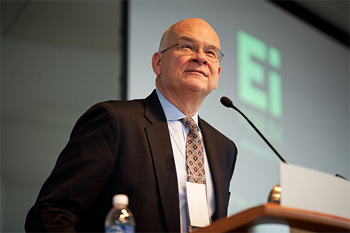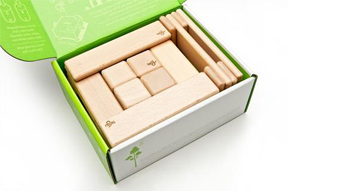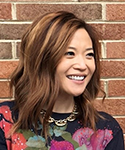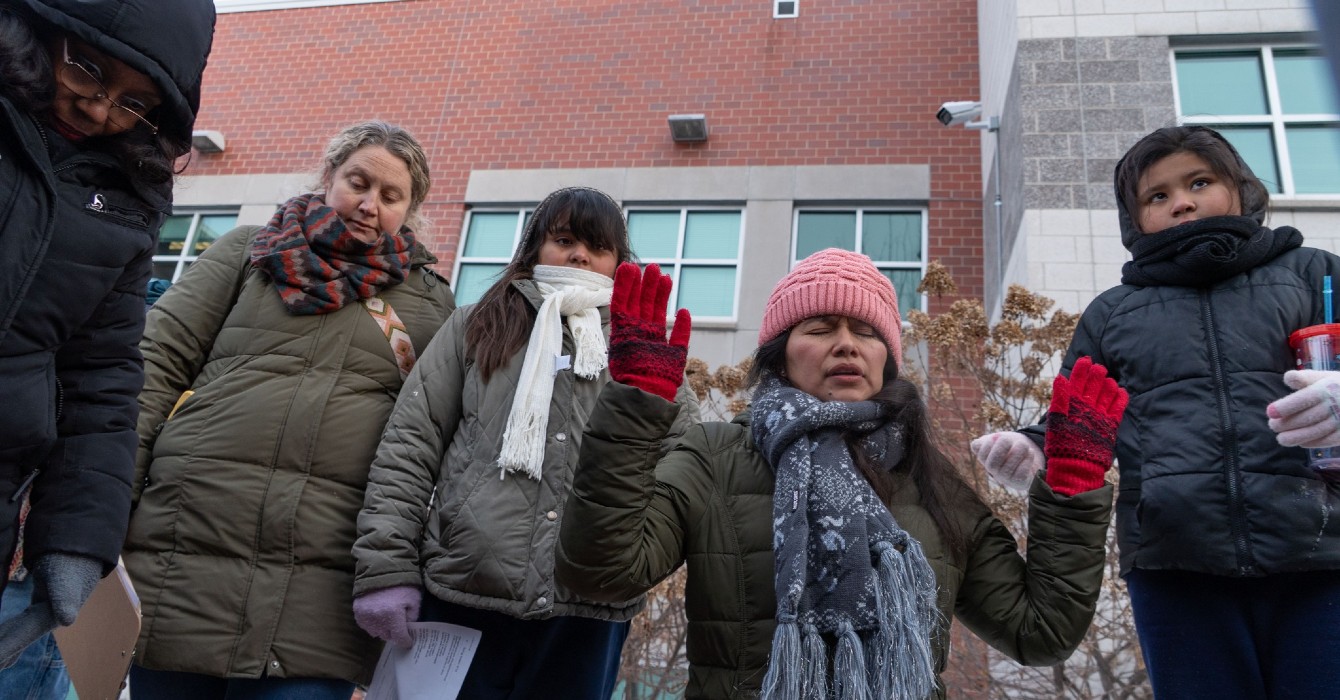100cameras
100cameras is the creation of four young 20-something women who share a love for photography and for learning to appreciate another’s point of view.
The nonprofit won $25,000 and a year of mentorship in Redeemer’s 2010 business plan competition for nonprofit ventures. The annual business plan competition seeks to identify promising entrepreneurs with “bold plans for gospel-advancing ventures” and awards $5,000 to $25,000 to the winning plan in each of three categories: for-profit, nonprofit and arts.
100cameras gives cameras to children in underserved areas, then sells the photographs the children take as a way to raise money for and awareness of their communities.
It’s not an entirely new idea. Any number of secular outfits have pursued photography and film endeavors shot by poor kids. What is new is the cumulative effect 100cameras plans to have.
“Imagine walking into a room and seeing the cumulative effect of 100 different perspectives,” co-founder Susanna Kohly said.
100cameras has so far launched two of its planned 100 endeavors: one is in a village in rural Southern Sudan and another is on the Lower East Side of Manhattan in a Puerto Rican neighborhood.
In Sudan, the kids had never seen a camera before. In New York, the kids are inundated with technology. The American kids weren’t impressed with the idea of taking pictures, until they share with them the photos from Sudan, Kohly said. “Then something clicks.”
One can see why, looking at those photos on their website. One young Sudanese photographer named Jackson has a backbone left in a “V” shape by polio. He “walks” on all fours and takes pictures from that angle looking up. The images from Sudan are arresting, then, not just because of the natural and human beauty in a place ravaged by decades of civil war, but because we’re seeing from a perspective similar enough to ours to be familiar, yet different enough to be interesting.
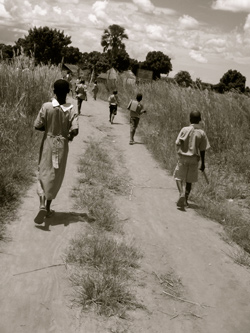 The photographers in New York learned from their instructors to pay particular attention to angles. One can see how their photos play with the many angles in a great architectural city.
The photographers in New York learned from their instructors to pay particular attention to angles. One can see how their photos play with the many angles in a great architectural city.
The idea is that a web viewer might be taken enough with the children’s angles -- with Jackson’s angle -- to purchase a photo. Those proceeds go back to the orphanage in Sudan or to New Life of New York City, a local community center on the Lower East Side. 100cameras also works with corporate sponsors: Samsung helped with an exhibit in the Time Warner Center in New York, and Whole Foods, which has a presence in the Puerto Rican neighborhood, sponsored their project. The founders’ hope is that businesses can be brought along and add to their effort to help the children in Sudan and New York.
“We see photography as a vehicle to help restore self-image,” Kohly said.
100cameras is not an explicitly faith-based organization, yet each of its founders and their vision is faith-inspired.
“Jesus challenged his disciples to have faith like a child,” co-founder Angela Bullock wrote in an e-mail. Seeing from the perspective of “the seemingly least of these will greatly bring glory to God.”
Blessed Nest
The story of Heather Anderson’s business is a story of friendship.
When a dear friend of Anderson’s had her first child via Caesarean section, the postoperative discomfort frustrated her efforts to breastfeed.
The standard nursing pillows didn’t help. “’Can you design me something?’” she asked Anderson said.
She certainly could. Anderson, a designer, researched the project and came up with a triangle-shaped pillow, rather than a wrap-around horseshoe. She filled it with beanbag buckwheat hulls, rather than a less malleable cushion, so it could be pushed into whatever shape the new mother needed.
It worked so well that she founded her business, Blessed Nest, and began selling her pillows. The benefit? A mom who could nurse like she’d hoped. And more.
“One quadriplegic dad could actually use this to hold his child,” Anderson said, choking up.
So how is this a specifically Christian act of entrepreneurship?
Anderson reflected on the woman who taught her to sew: her great-grandmother.
“She used to say, ‘Every stitch a loving thought.’ I’ve prayed as I’ve made these pillows. I think people could tell if I tried to outsource the production to China,” she said. The products are also eco-friendly.
Pressed further, she expressed her dream that her business will grow big enough to allow her to support other fledgling entrepreneurial endeavors, giving back as she was given to when she won $25,000 in startup money from Redeemer’s business plan competition in 2008.
Anderson describes herself as a nurturer. Although she doesn’t have children yet, in a church like Redeemer, God has given her countless “nephews” and “nieces,” for whom she cares as a provider of goods for their nursing mothers: “And that’s a Jesus thing.”
It’s also a business thing. Redeemer is a church of some 5,000 members, among whom word of a new business venture travels far (entrants in the EI Business Plan Competition don’t have to be Redeemer members, but they do have to be from churches willing to work and partner with Redeemer).
“Networking is sort of the secular equivalent of fellowship,” Anderson said. “At Redeemer, word spreads fast.”



